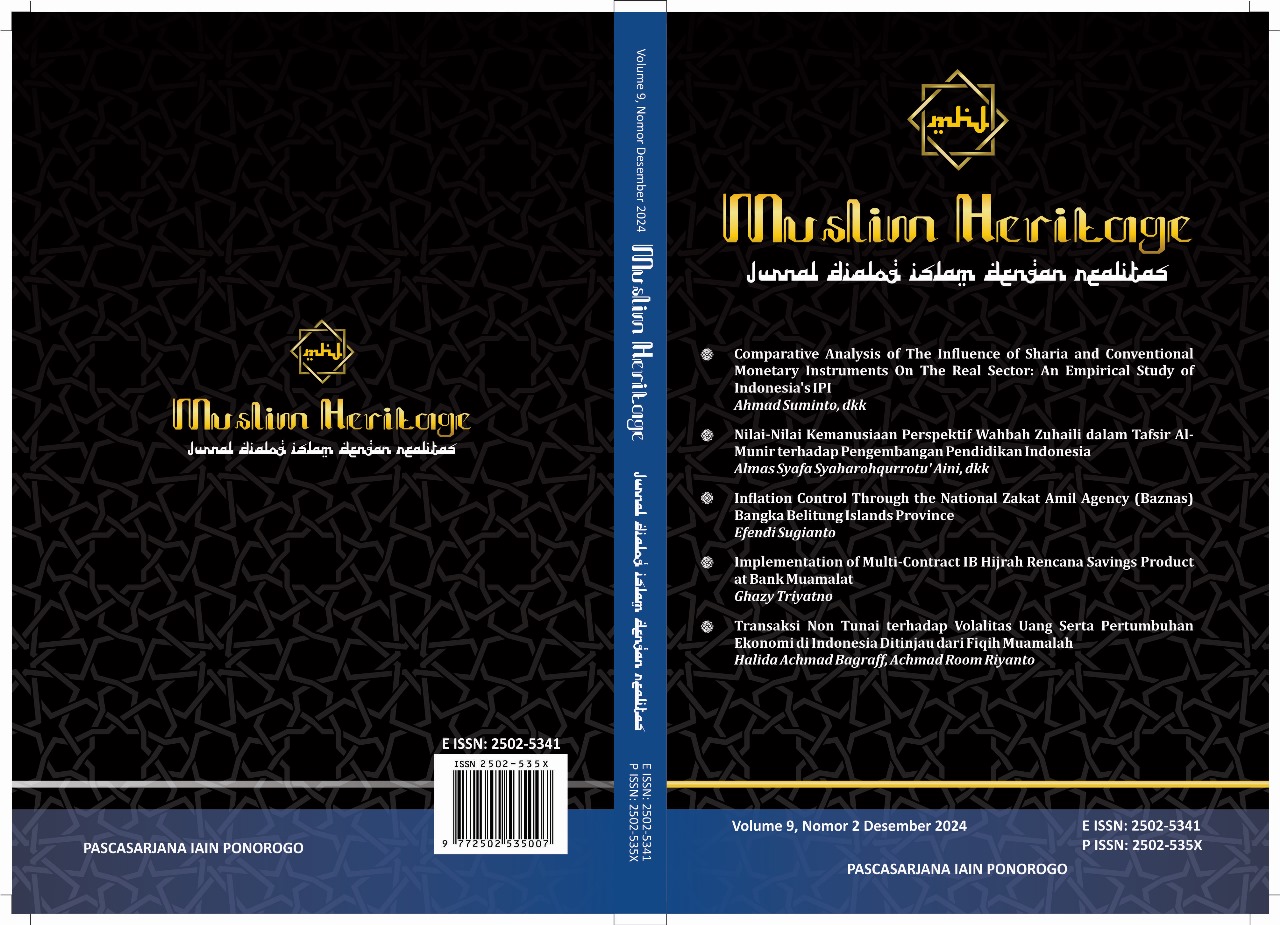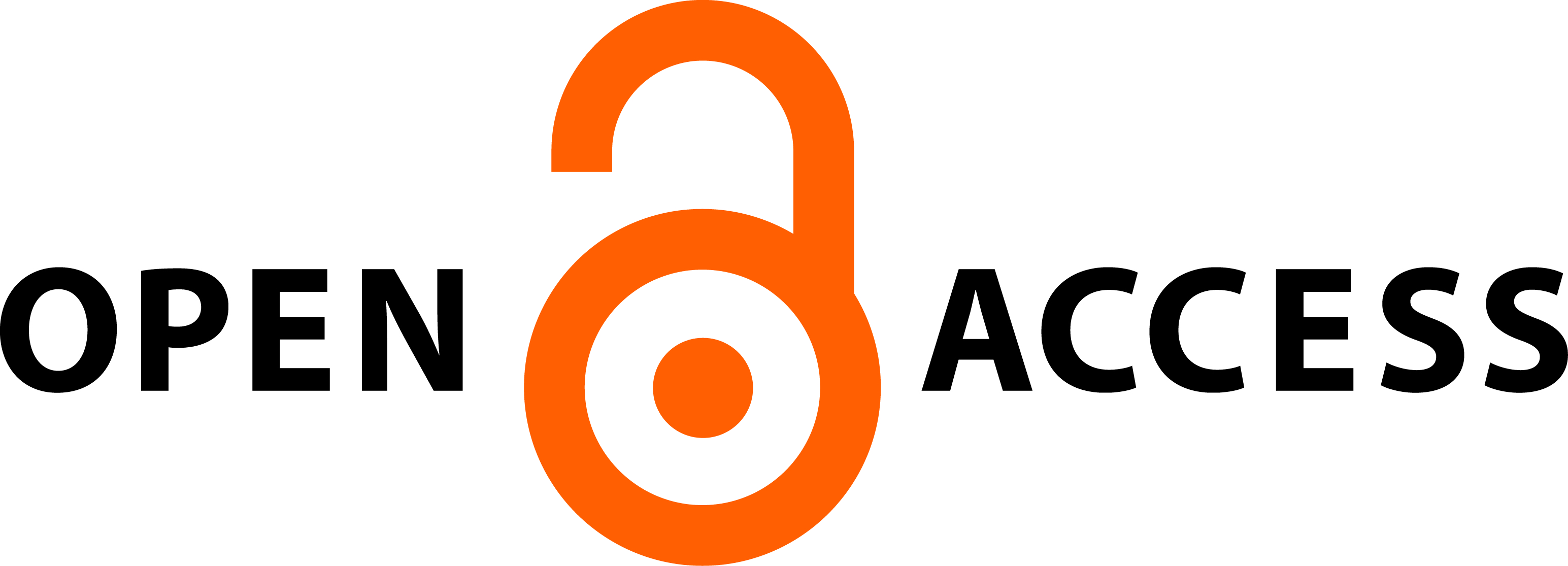Transaksi Non Tunai terhadap Volalitas Uang Serta Pertumbuhan Ekonomi di Indonesia Ditinjau dari Fiqih Muamalah
Keywords:
Covid-19, Money, Non-Cash, Economy, Fiqh MuamalahAbstract
Abstract
This research investigates the impact of non-cash transactions before, during, and after the COVID-19 pandemic on the money supply and economic growth Indonesia, utilizing a literature review approach and Islamic economic theory. The results indicate that non-cash transactions, such as debit card, credit card, and electronic money usage, have become the primary choice for Indonesian society, particularly during the COVID-19 pandemic due to concerns about virus transmission through cash. Bank Indonesia has supported this transition by encouraging the adoption of non-cash transactions through policies such as the QR Code Indonesia Standard (QRIS) and the Cashback Attack program. The impact of non-cash transactions on the money supply is highly positive, accelerating the circulation of money in society and enhancing financial inclusion. Although research findings regarding the impact of non-cash transactions on economic growth are inconsistent, non-cash transactions overall provide a positive contribution to Indonesia's economic growth. From the perspectives of Fiqh Muamalat and Islamic Economic Theory, non-cash transactions adhere to Sharia principles, support economic efficiency and transparency, and help maintain Indonesia's economic stability. This research emphasizes the importance of cashless transactions in the modern economy and suggests further research to understand the complex dynamics that influence the impact of cash payments on Indonesia's economic growth in greater depth.
Abstrak
Penelitian ini menginvestigasi dampak transaksi non-tunai sebelum, selama, dan setelah pandemi COVID-19 terhadap jumlah uang beredar dan pertumbuhan ekonomi Indonesia, dengan menggunakan pendekatan tinjauan literatur dan teori ekonomi Islam. Hasilnya menunjukkan bahwa transaksi non-tunai, seperti kartu debit, kartu kredit, dan penggunaan uang elektronik, telah menjadi pilihan utama bagi masyarakat Indonesia, terutama selama pandemi COVID-19 karena adanya kekhawatiran akan penularan virus melalui uang tunai. Bank Indonesia telah mendukung transisi ini dengan mendorong adopsi transaksi non-tunai melalui kebijakan seperti QR Code Indonesia Standard (QRIS) dan program Cashback Attack. Dampak transaksi non-tunai terhadap jumlah uang beredar sangat positif, mempercepat peredaran uang di masyarakat dan meningkatkan inklusi keuangan. Meskipun hasil penelitian dampak transaksi non-tunai terhadap pertumbuhan ekonomi belum konsisten, namun secara keseluruhan transaksi non-tunai memberikan kontribusi positif terhadap pertumbuhan ekonomi Indonesia. Dari perspektif Fiqh Muamalat dan Teori Ekonomi Islam, transaksi non-tunai sesuai dengan prinsip-prinsip Syariah, mendukung efisiensi dan transparansi ekonomi, serta membantu menjaga stabilitas ekonomi Indonesia. Penelitian ini menekankan pentingnya transaksi non-tunai dalam perekonomian modern dan menyarankan penelitian lebih lanjut untuk memahami dinamika kompleks yang mempengaruhi dampak pembayaran secara tunai bagi pertumbuhan ekonomi Indonesia dengan lebih mendalam.
Keywords: Covid-19; Money; Non-Cash; Economy; Fiqh Muamalah.
Downloads
Published
Issue
Section
License
Copyright (c) 2024 Muslim Heritage

This work is licensed under a Creative Commons Attribution-NonCommercial 4.0 International License.
Requirements to be met by the author as follows:
- Author storing copyright and grant the journal right of first publication manuscripts simultaneously with licensed under the Creative Commons Attribution License that allows others to share the work with a statement of the work's authorship and initial publication in this journal.
- Authors can enter into the preparation of additional contractual separately for non-exclusive distribution of a rich version of the journal issue (eg:post it to an institutional repository or publish it in a book), with the recognition of initial publication in this journal.
- Authors are allowed and encouraged to post their work online (eg, in institutional repositories or on their website) prior to and during the submission process, because it can lead to productive exchanges, as well as citations earlier and more severe than published works. (see The Effect of Open Access).















